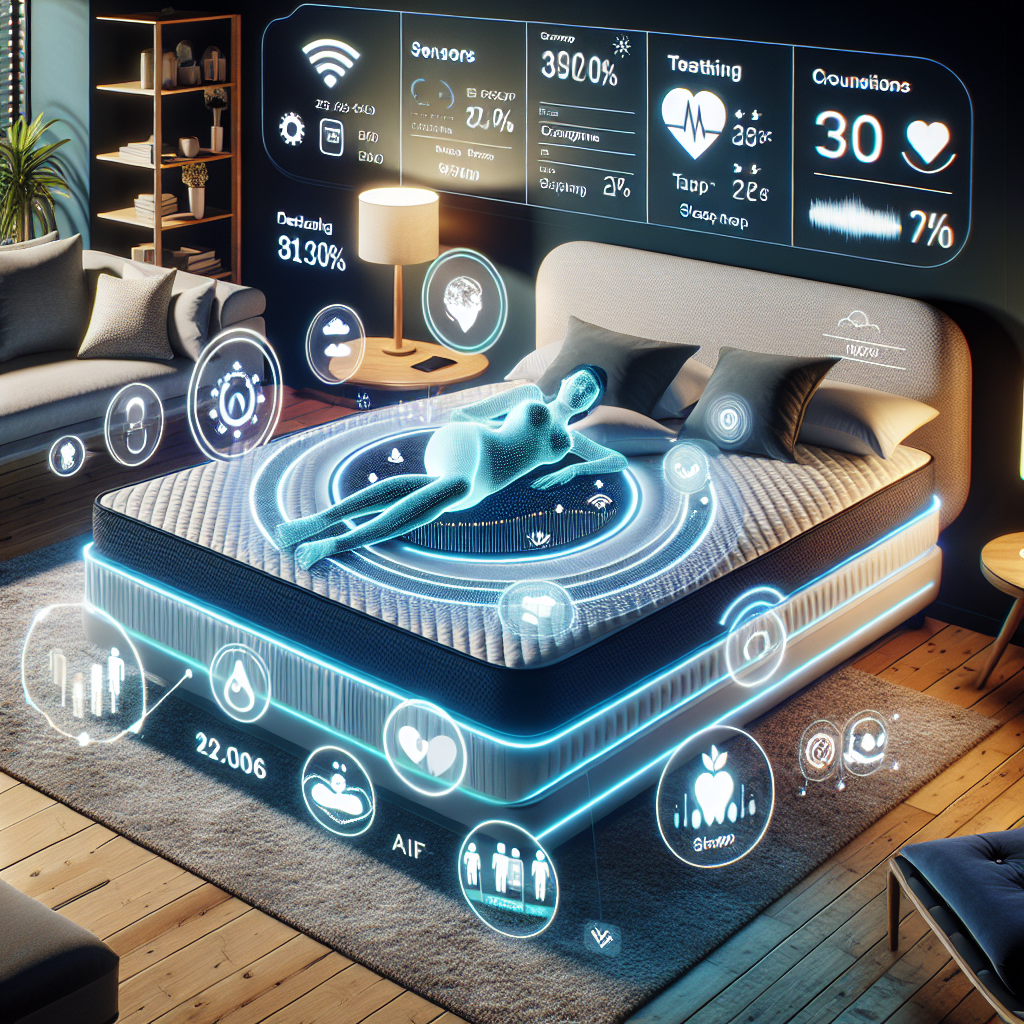Remote Worker Sleep Enhancement Guide
Introduction: The Hidden Sleep Struggles of Remote Workers
With the rise of digital technology and the increasing demand for work flexibility, remote work has become a standard for many professionals around the world. While working from home offers numerous advantages—such as increased autonomy, reduced commuting time, and improved work-life integration—it also presents challenges, especially when it comes to sleep health.
Remote workers often struggle with irregular sleep patterns, decreased sleep quality, and excessive screen exposure, all of which can negatively impact their well-being and productivity. A proper sleep routine is essential for maintaining cognitive function, emotional balance, and overall health. Studies show that poor sleep can lead to decreased concentration, impaired decision-making, and even long-term health problems such as obesity, cardiovascular disease, and mental health disorders. The blurred boundaries between work and rest can lead to inconsistent sleep schedules, excessive nighttime work, and difficulties unwinding before bed.
Despite these challenges, remote workers can take practical steps to enhance sleep quality. Implementing consistent sleep schedules, reducing screen exposure before bedtime, creating a designated relaxation space, and practicing mindfulness techniques can significantly contribute to restful sleep.
This guide explores evidence-based strategies for improving sleep health among remote workers. Whether you’re a freelancer, entrepreneur, or full-time remote employee, understanding how to optimize your sleep habits will help you maintain peak performance, improve your overall well-being, and make the most of your work-from-home experience.
The Science of Sleep: How Remote Work Affects Rest
Numerous studies highlight the critical impact of sleep on cognitive function, emotional stability, and overall productivity. The National Sleep Foundation recommends that adults aim for **7-9 hours of sleep per night** to maintain optimal brain function and physical health [1]. However, research indicates that **remote workers often struggle to adhere to this recommendation** due to constant connectivity, increased digital exposure, and irregular working hours.
A study published in *Sleep Health* found that **remote employees experience more sleep disturbances and difficulty maintaining a structured sleep schedule** due to blurred boundaries between work and leisure [2]. The **lack of a structured office routine** contributes to increased nighttime wakefulness and delayed sleep onset.
The Role of Blue Light: How Screen Time Disrupts Sleep
**Blue light exposure** is another significant factor affecting sleep patterns for those working remotely. **Digital devices emit blue light**, which suppresses the production of **melatonin**, the hormone responsible for regulating sleep-wake cycles.
A study conducted by **Harvard Medical School** found that **blue light exposure before bed can delay sleep onset by up to 90 minutes**, making it harder for individuals to fall asleep and achieve truly restorative deep sleep [3].
The Importance of Physical Activity in Sleep Quality
Regular physical activity plays a fundamental role in **regulating circadian rhythms** and promoting deep sleep. However, **remote workers often engage in prolonged sitting**, which may contribute to poor sleep due to **reduced exposure to natural light and insufficient movement**.
A study published in *Medicine & Science in Sports & Exercise* revealed that **regular exercise improves sleep efficiency** and increases **slow-wave sleep**, the most restorative phase of sleep [4].
Mindfulness & Relaxation: Keys to Better Sleep
Mindfulness and **stress reduction techniques** can significantly enhance sleep quality. **Chronic stress and anxiety** can make it difficult for remote workers to unwind, leading to **poor sleep patterns and insomnia**.
A study published in *JAMA Internal Medicine* found that **mindfulness meditation significantly improved sleep quality** in individuals experiencing insomnia. Practicing **mindfulness techniques before bed** can help remote workers manage stress, quiet the mind, and prime the body for restful sleep [5].
Practical Strategies for Better Sleep as a Remote Worker
Improving sleep quality requires **intentional lifestyle changes**. Here are some **effective sleep-enhancing strategies** tailored for remote workers:
– **Set Regular Sleep and Wake Times**: Going to bed and waking up at the same time daily helps regulate your circadian rhythm.
– **Limit Screen Exposure Before Bed**: Avoid using digital devices at least **one hour before bedtime** to prevent blue light interference with melatonin production.
– **Create a Relaxing Pre-Sleep Routine**: Engage in relaxing activities such as **reading, meditation, or deep breathing exercises** before bed.
– **Exercise Daily**: Incorporate **at least 30 minutes of physical activity** into your routine to promote deeper sleep.
– **Design a Sleep-Friendly Environment**: Keep your bedroom cool, dark, and comfortable to enhance **sleep quality**.
– **Use Mindfulness Techniques**: Try meditation or guided relaxation exercises to help calm your mind before sleeping.
Conclusion: Prioritizing Sleep for Long-Term Success
**Sleep health is foundational to productivity, mental clarity, and overall well-being**. While the flexibility of remote work offers many benefits, it also increases the risk of **poor sleep due to irregular schedules, screen exposure, and stress**.
By **adopting sleep-friendly habits**—such as maintaining a structured sleep schedule, reducing blue light exposure, engaging in physical activity, and practicing mindfulness—remote workers can greatly **enhance their sleep quality and overall performance**.
As remote work continues to rise as a **mainstream work model**, focusing on proper sleep hygiene will be **essential for sustaining productivity, creativity, and long-term health**. Making **small, impactful changes to daily routines** can lead to **profound improvements in sleep—and in life**.
**Which of these sleep strategies will you implement first? Let us know in the comments!**
## Summary
This article explores the challenges remote workers face in maintaining optimal sleep health, and provides practical strategies to enhance sleep quality. It covers the science behind how remote work affects sleep, the role of blue light exposure, the importance of physical activity, and the benefits of mindfulness techniques. The article then outlines practical tips for remote workers to improve their sleep, including setting regular sleep schedules, limiting screen time, creating a relaxing pre-bed routine, exercising daily, and using mindfulness practices. The conclusion emphasizes the critical importance of prioritizing sleep for remote workers’ long-term success and well-being.
## References
1. National Sleep Foundation. “What Happens When You Don’t Get Enough Sleep.” [Link]
2. *Sleep Health*: “Impact of Remote Work on Sleep.” [Link]
3. Harvard Medical School. “Blue Light Has a Dark Side.” [Link]
4. *Medicine & Science in Sports & Exercise*: “Effects of Regular Exercise on Sleep Disorders.” [Link]
5. *JAMA Internal Medicine*: “Mindfulness Meditation to Improve Sleep Quality.” [Link]

Dominic E. is a passionate filmmaker navigating the exciting intersection of art and science. By day, he delves into the complexities of the human body as a full-time medical writer, meticulously translating intricate medical concepts into accessible and engaging narratives. By night, he explores the boundless realm of cinematic storytelling, crafting narratives that evoke emotion and challenge perspectives.
Film Student and Full-time Medical Writer for ContentVendor.com




